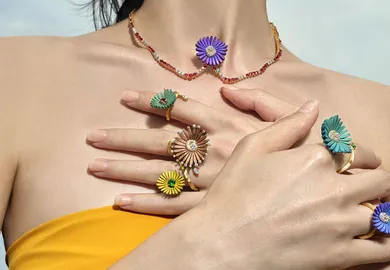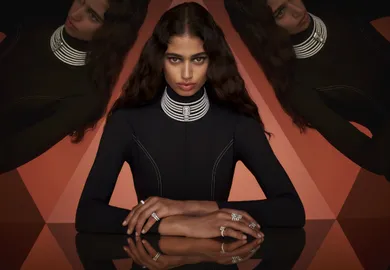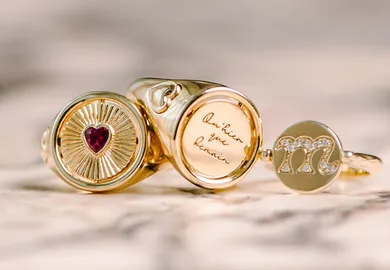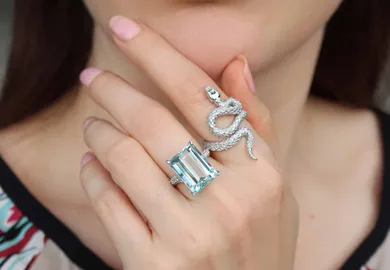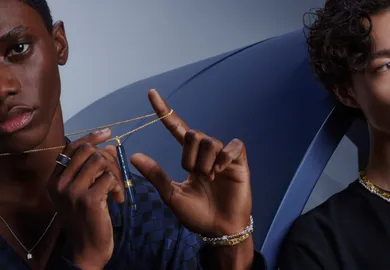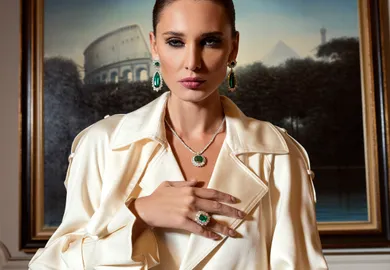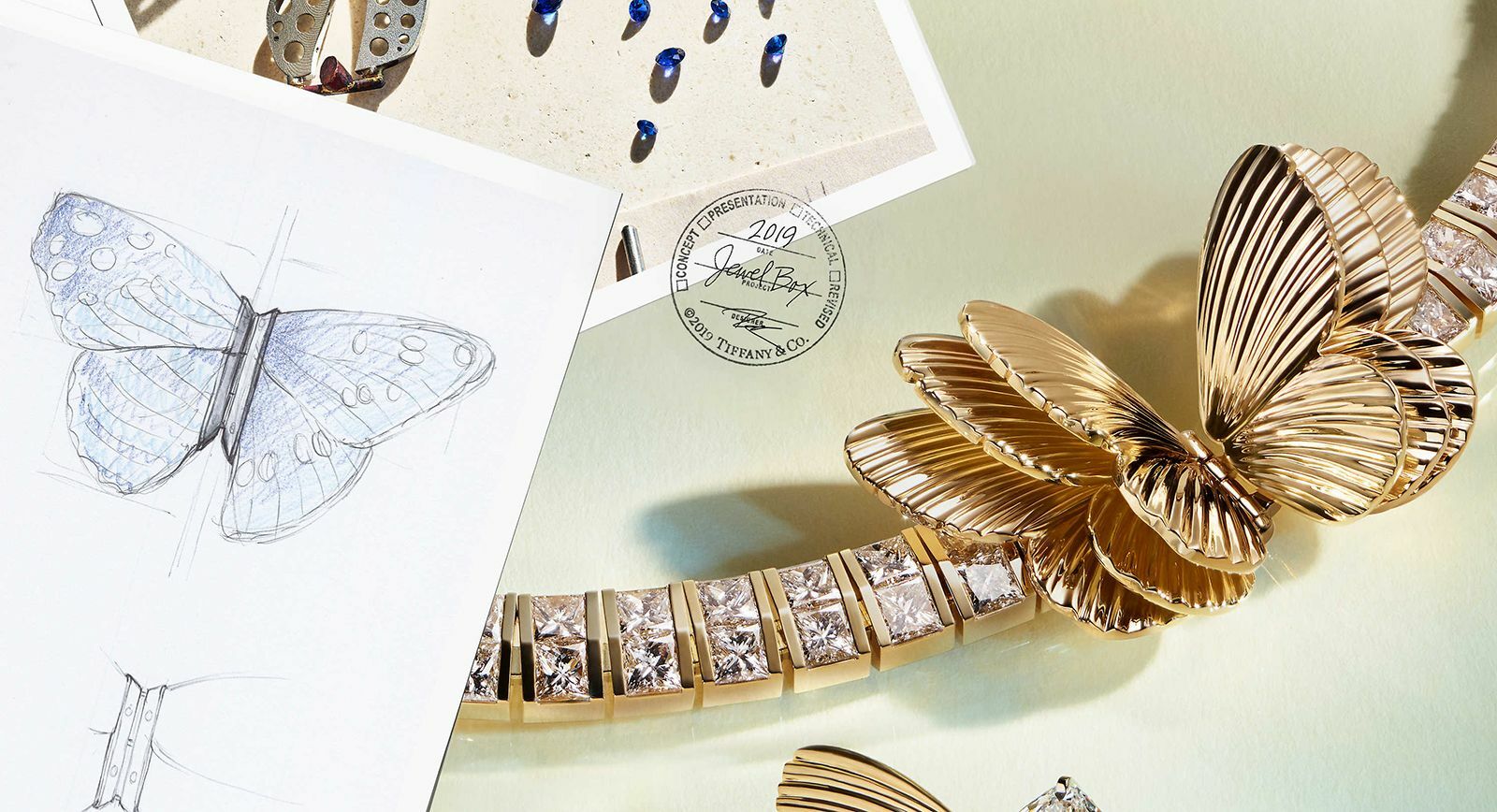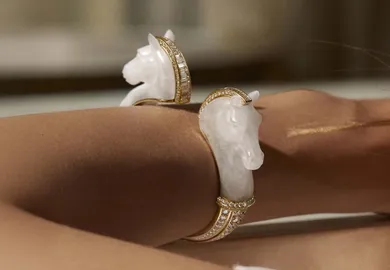
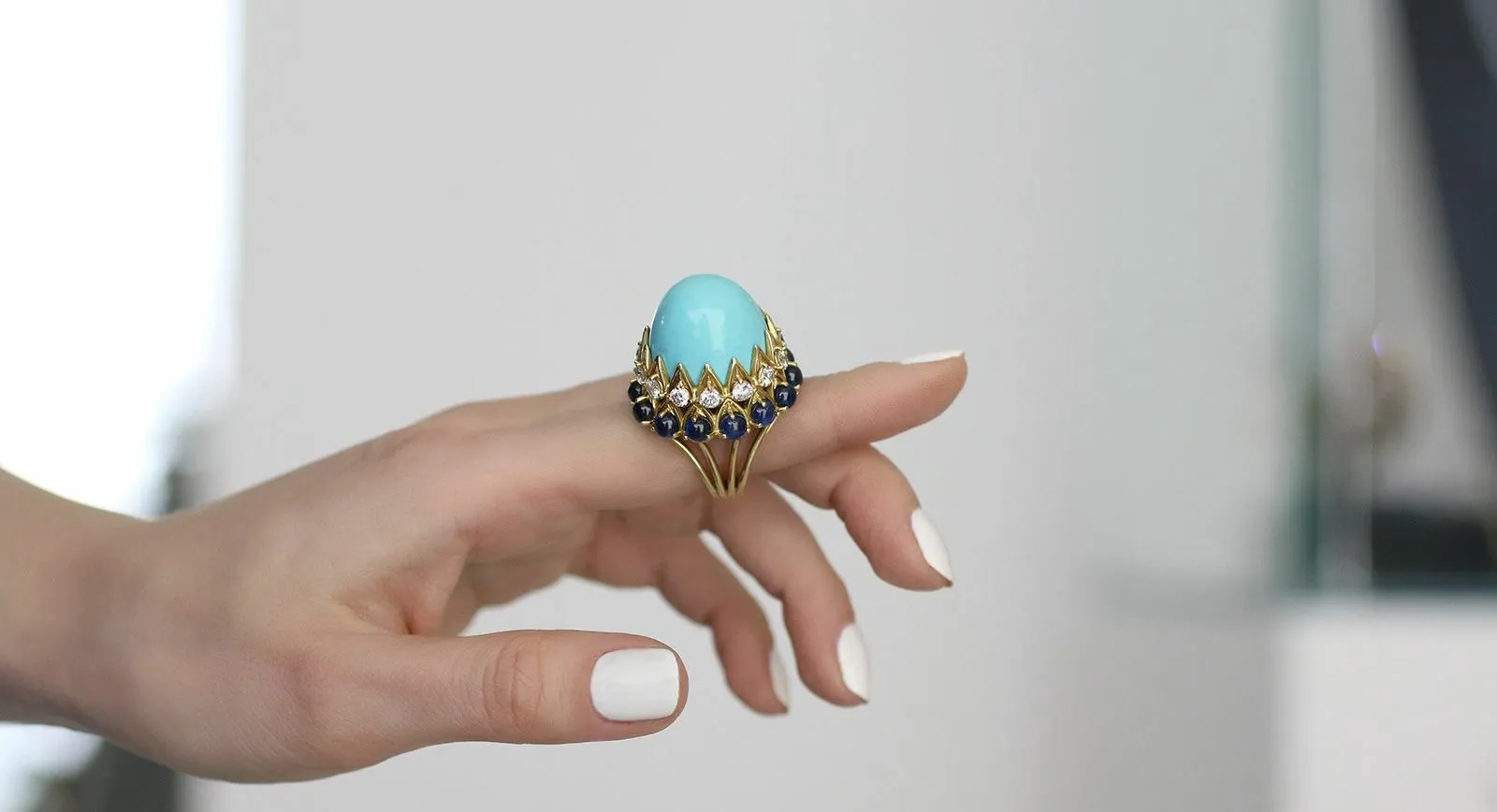
Turquoise: A Gemstone the Colour of the Morning Sky
The talisman of lords, a symbol of good luck, a protecting stone, a love amulet – legend has it that all these can be attributed to turquoise. Its significance is increased if you were born in December: those whose birthday falls in the last month of the year are afforded special protection by this stone that boasts the colour of the morning sky.
Until recently, the jewellery industry saw turquoise as an inexpensive material that could be framed in silver. It was in this form that the stone with its amazing colour would find itself in the jewellery boxes of young ladies. But the latest trends – which paved the way for this admittedly affordable but enchanting gemstone to make its way into high jewellery collections – have taken turquoise to a whole new level. In the last year alone, it has become part of collections at Bulgari, Harry Winston, Louis Vuitton, Mellerio Dits Meller, Suzanne Syz, Veschetti, David Yurman and many other famous brands.
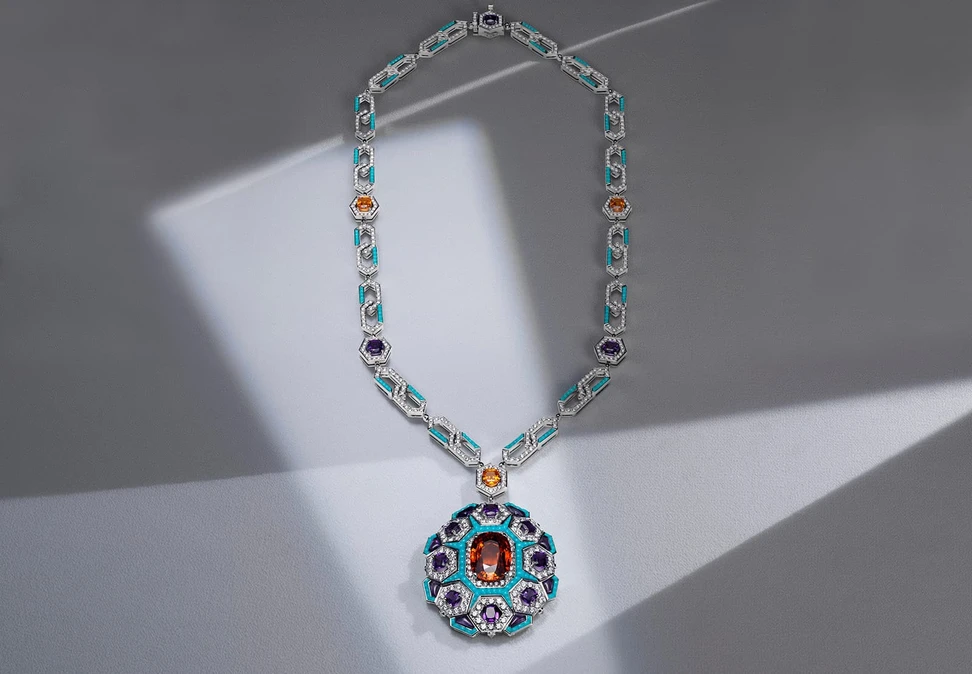
Bvlgari Cinemagia collection necklace
This appears to be something of an unprecedented elevation for such an unpretentious stone, but no! Turquoise has for time immemorial been accustomed to royal environments, both in the literal and figurative sense. In the 16th century for example, Persian craftsmen made the throne presented to Boris Godunov by Shah Abbas I from hammered gold with a floral pattern that was richly decorated with rubies, pearls and turquoise. Turquoise also adorns the throne that originally belonged to Ivan the Terrible, and then to Mikhail Romanov. Here, inlays made with the blue mineral are accentuated by tourmalines, chrysolites, pearls and two large topazes. It is not surprising that turquoise became world-famous thanks to the generous gifts of eastern rulers, as its first deposits were found in modern-day Iran. Now turquoise is also mined in the USA (Arizona), Mexico, Mongolia, Afghanistan, China, Israel, Kazakhstan, Uzbekistan and the Sinai Peninsula.
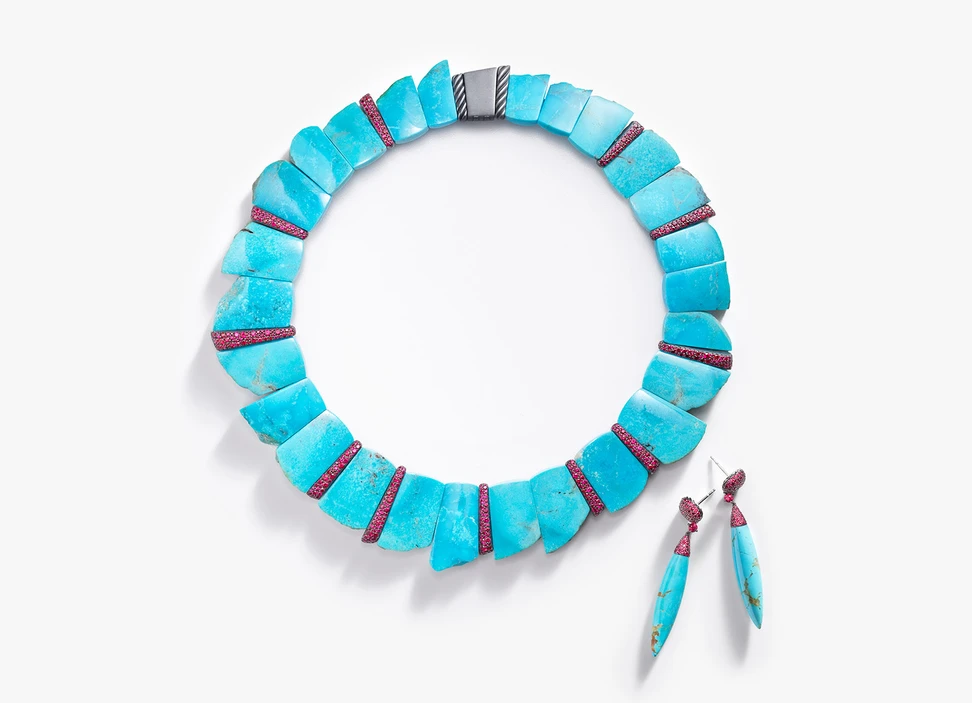
David Yurman turquoise necklace and earrings from Artist Series
Turquoise certainly was not chosen to be a December birthstone by chance. It can be damaged by fats, oils and alcohol solutions, heat or direct sunlight – but with the help of water it adopts a more intense colour. There is often not enough blue sky in winter, and so a jewel with this particular colour will invariably invoke pleasant associations for both its owner and for those around them!
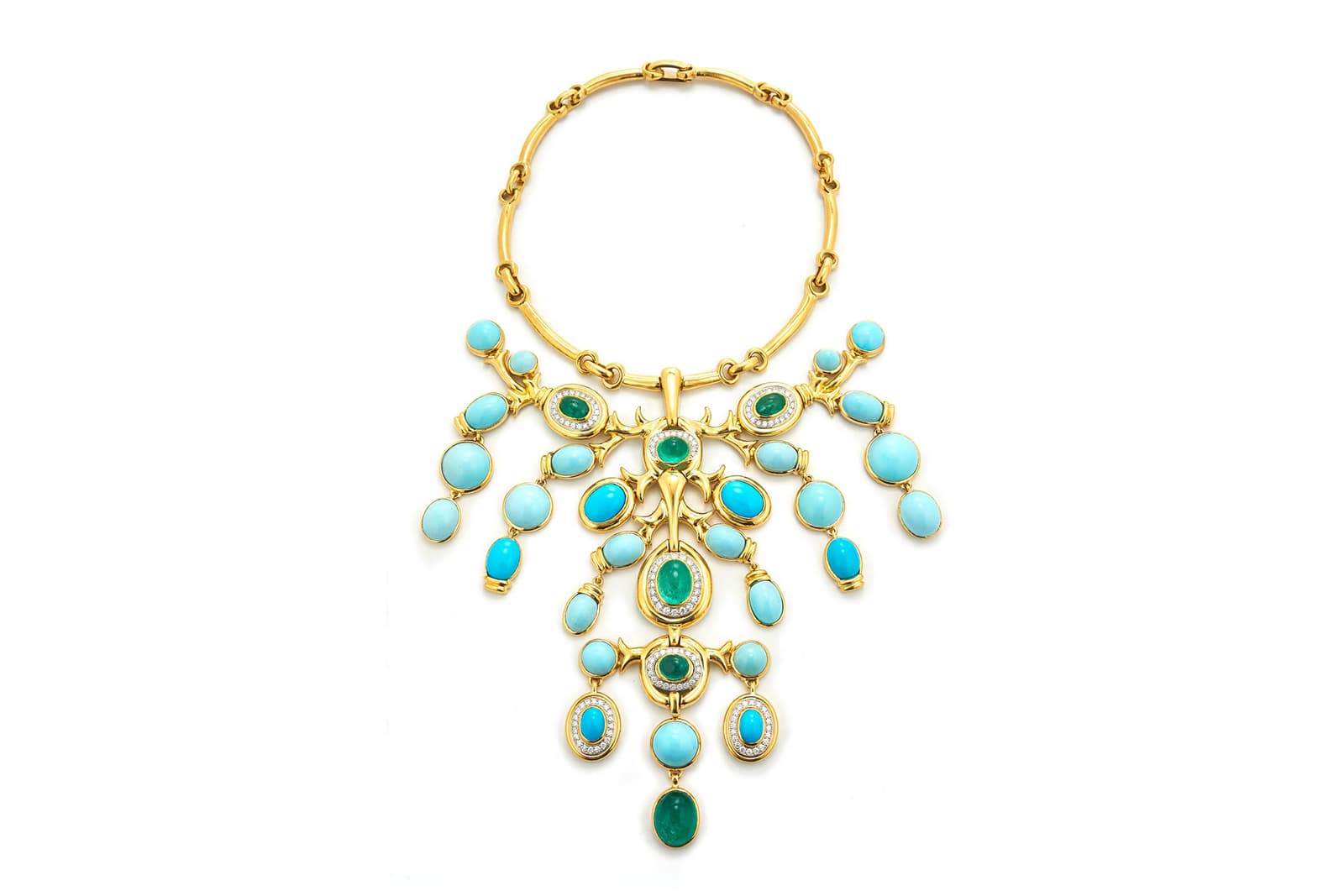
David Webb
David Webb
Shangri-La necklace with carved emeralds, oval cabochon turquoise, brilliant-cut diamonds, polished 18K gold, and platinum
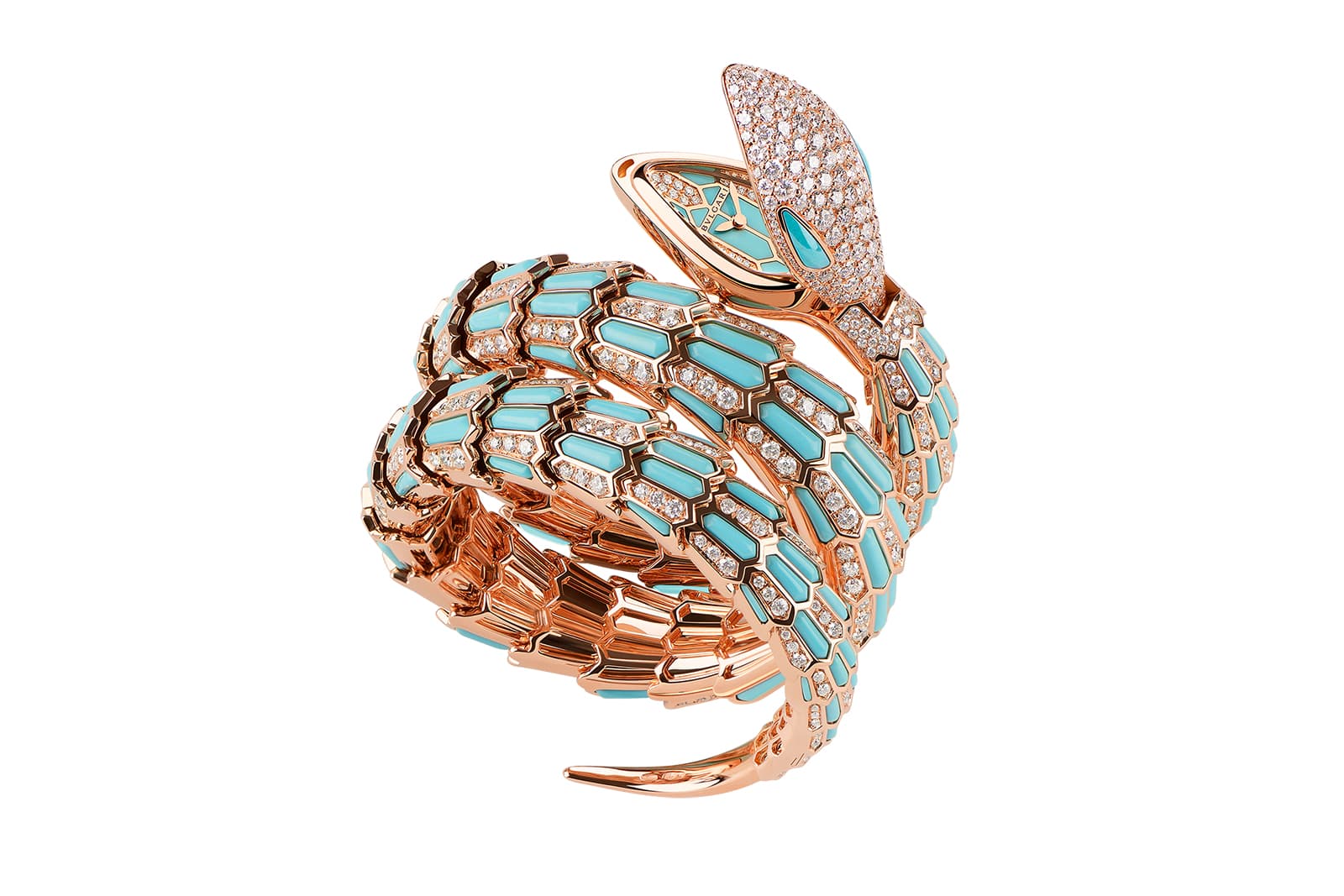
Bvlgari
Bvlgari
Serpenti Secret Watch with 18 kt rose gold head set with brilliant cut diamonds and turquoise eyes, 18 kt rose gold case, 18 kt rose gold dial and double spiral bracelet, both set with brilliant cut diamonds and turquoises
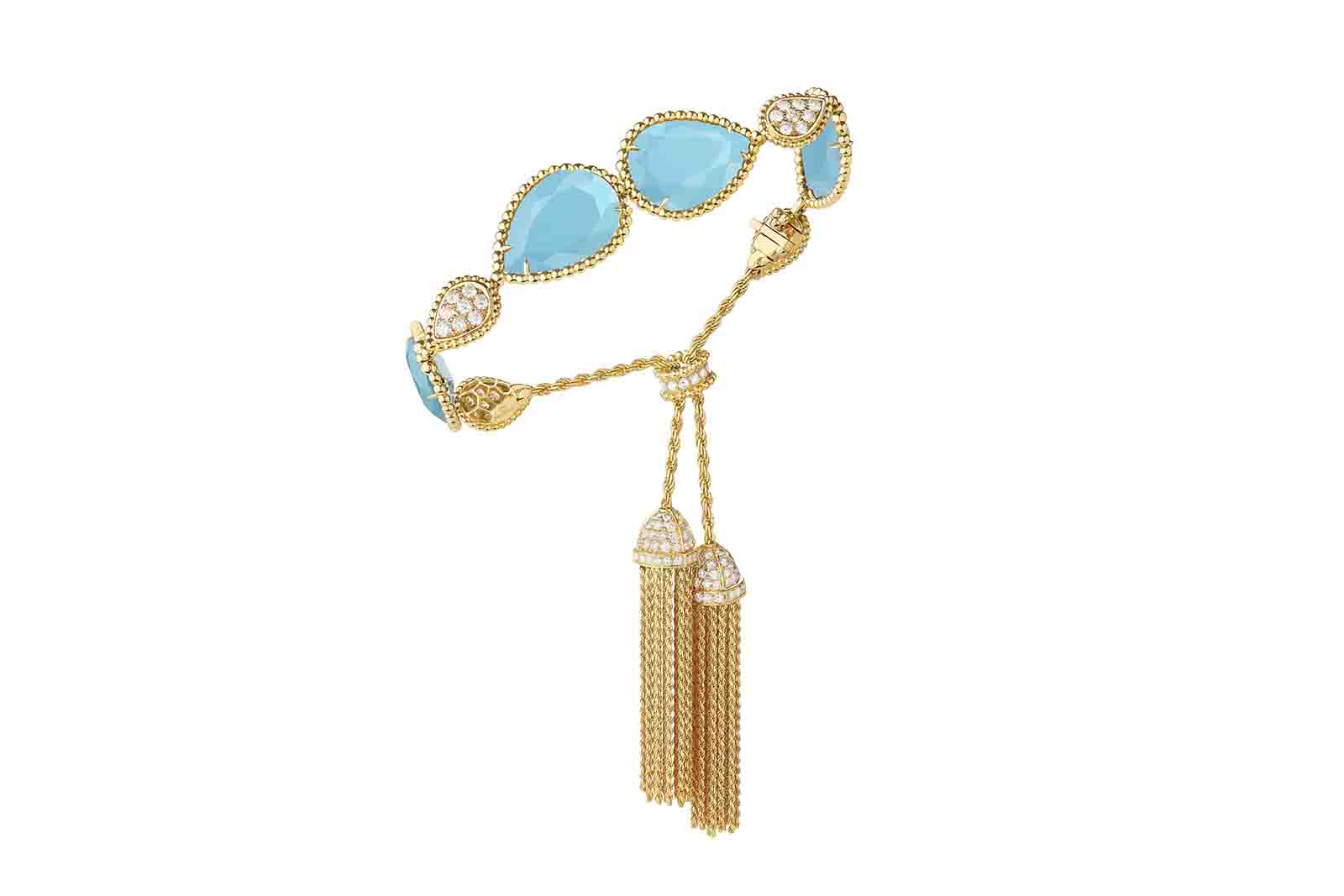
Boucheron
Boucheron
Serpent Bohème Bracelet Pompon set with turquoise and diamonds in yellow gold
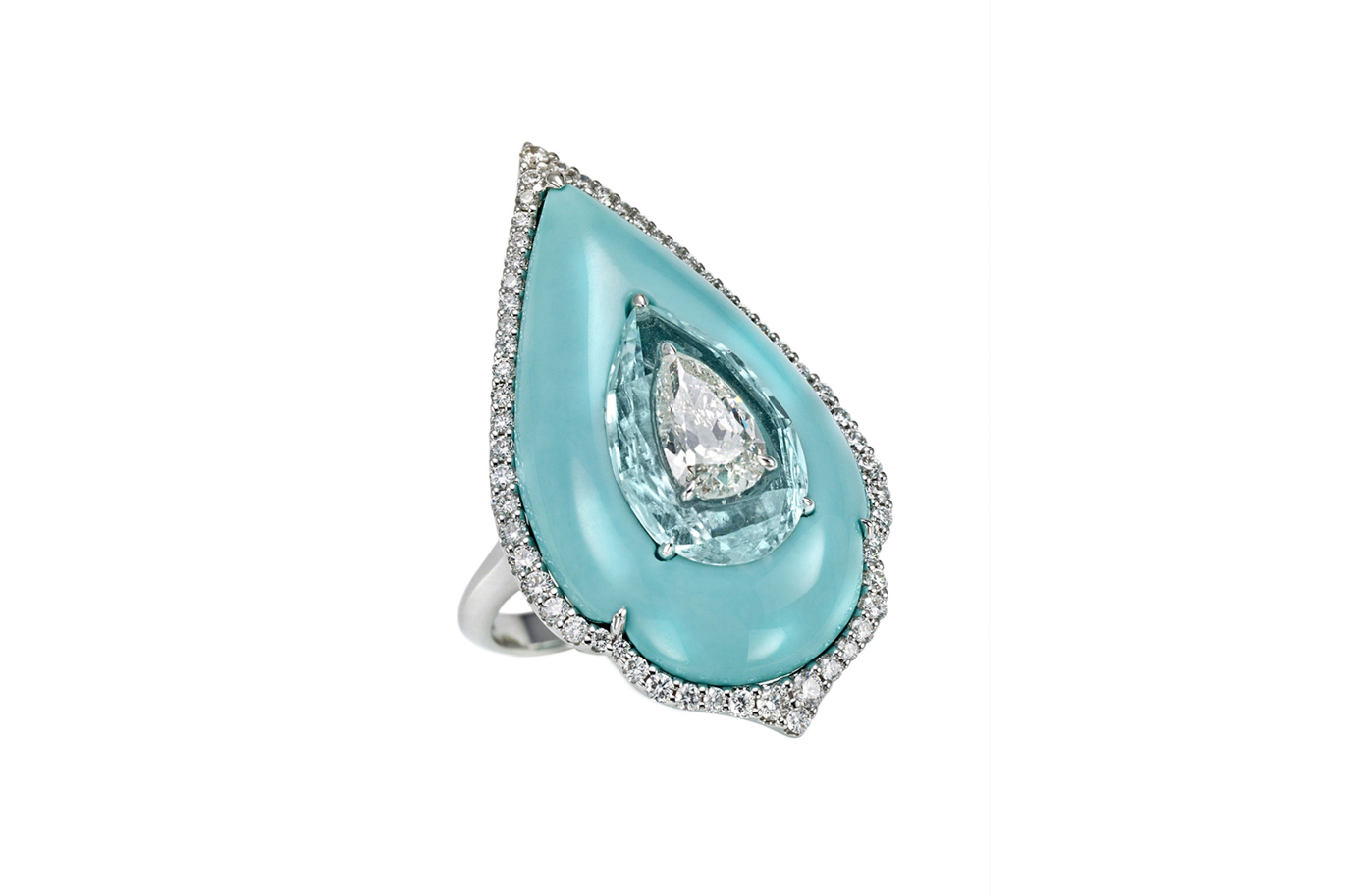
Boghossian
Boghossian
Art of Inlay ring with turquoise, aquamarine and diamond
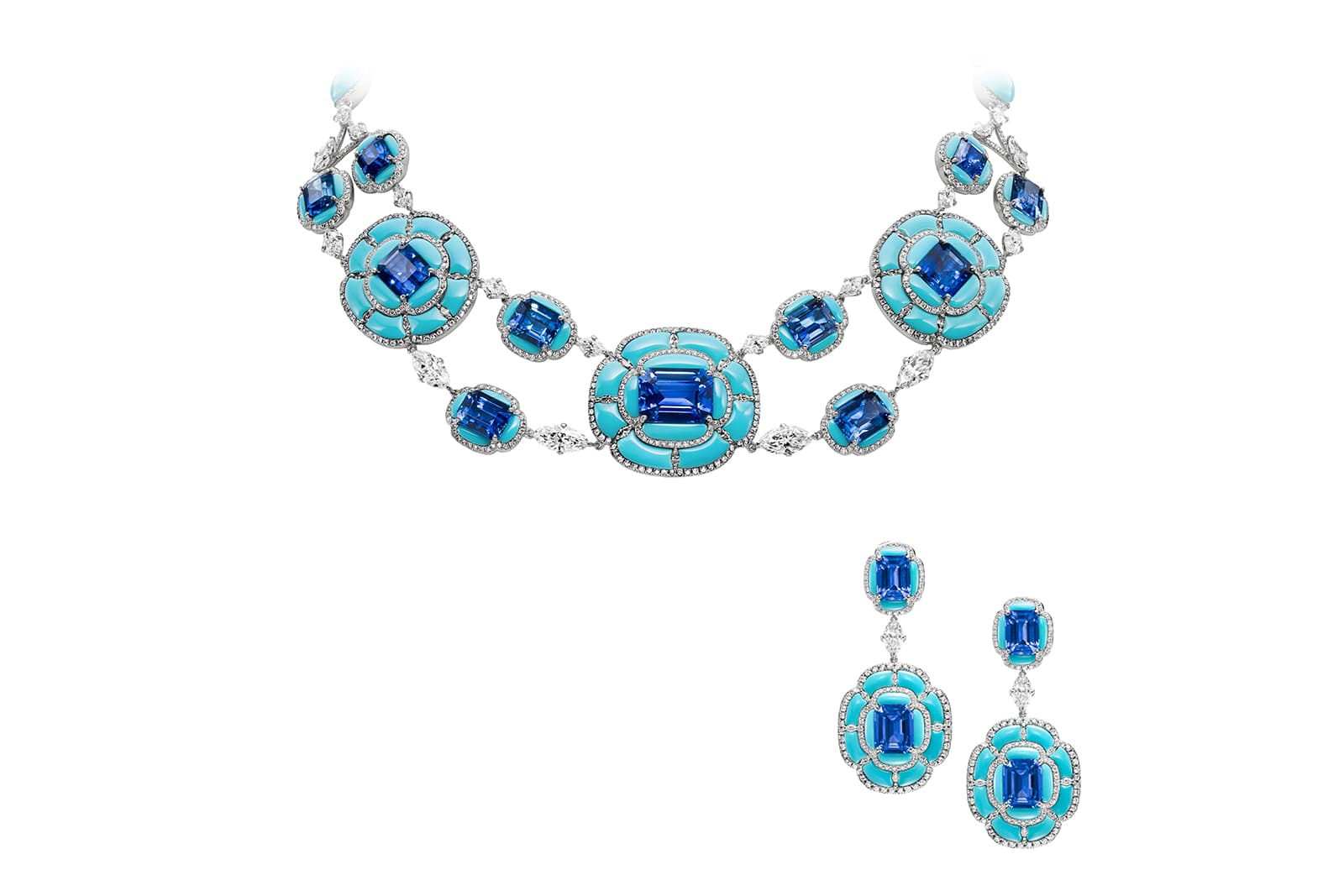
Boghossian
Boghossian
Art of Inlay necklace with sapphires inlaid in turquoise and further embellished with diamonds
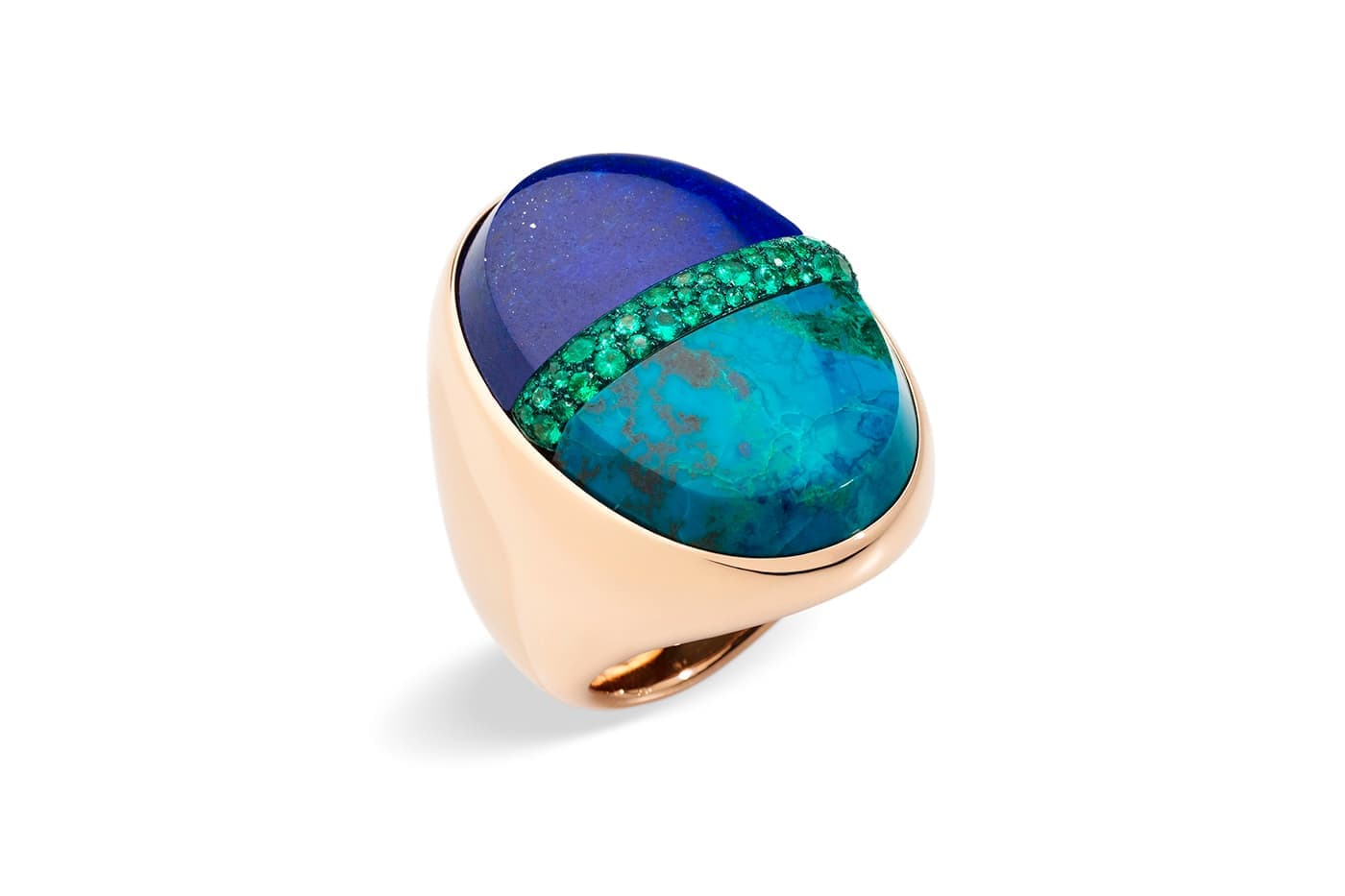
Pomellato
Pomellato
Pomellato Armonie Minerali ring with lapis lazuli, chrysocolla and emeralds
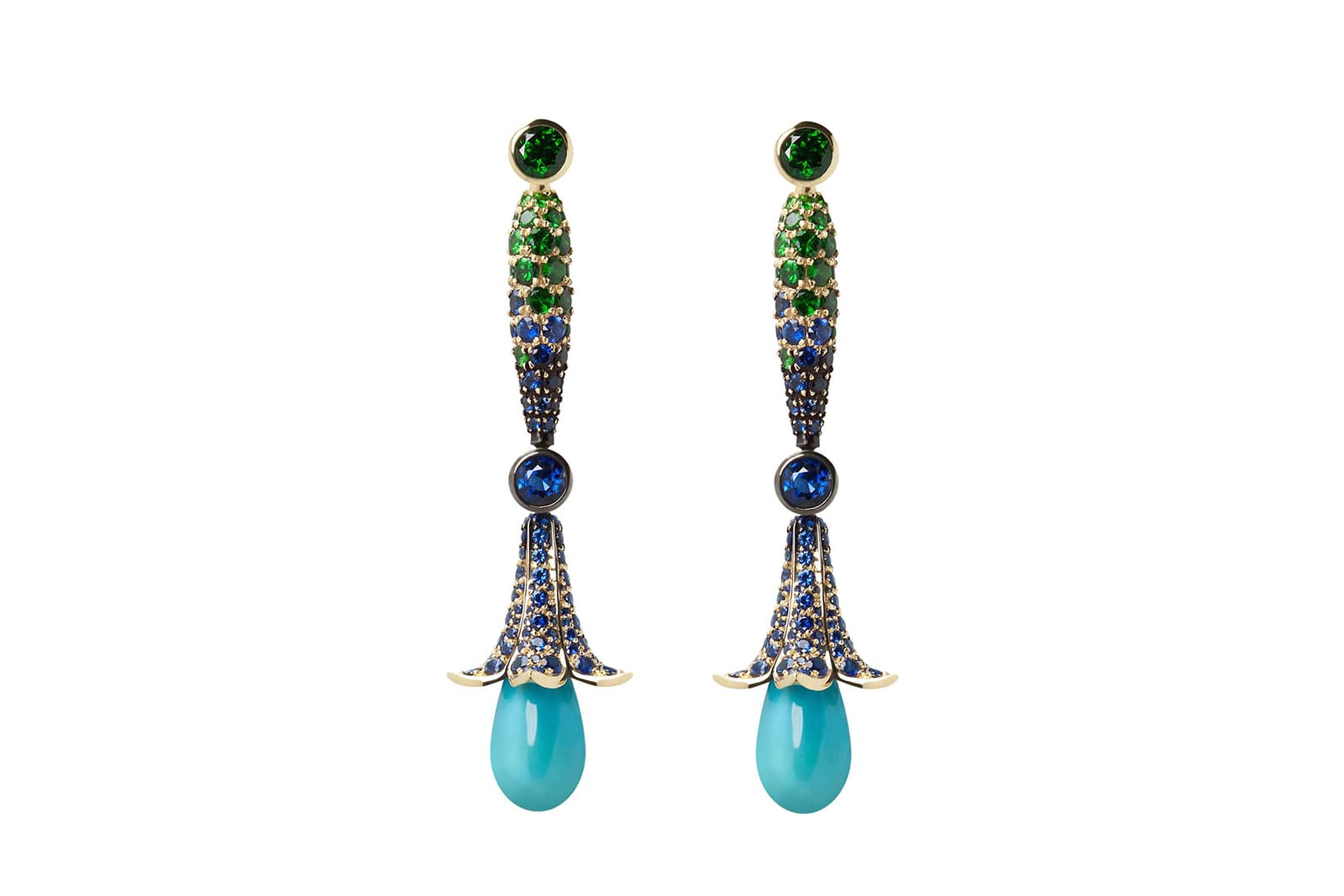
Ming Lampson
Ming Lampson
Turquoise Flower Drop earrings with turquoise drops, tsavorites and sapphires
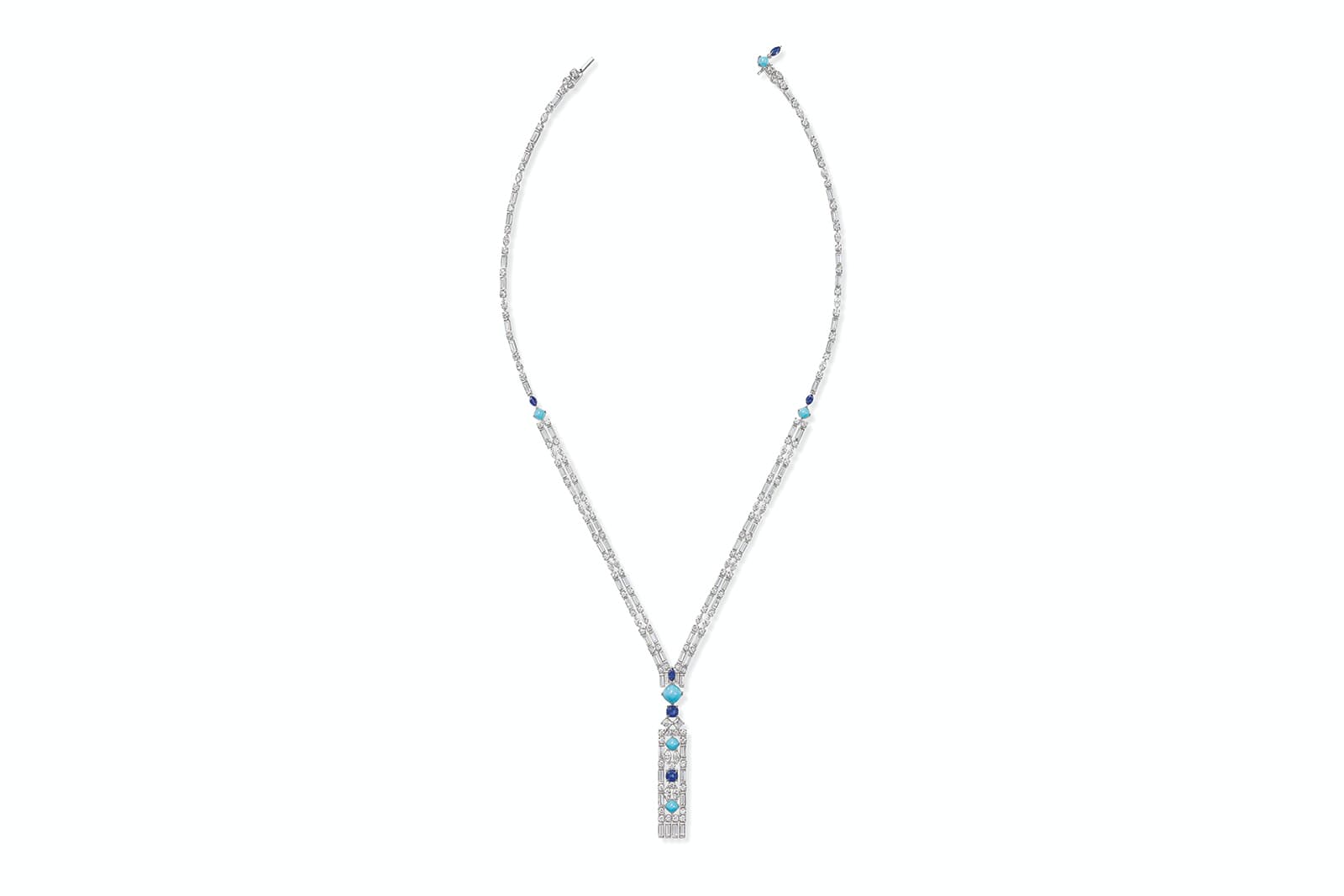
Harry Winston
Harry Winston
Brownstone necklace with turquoise, sapphires and diamonds
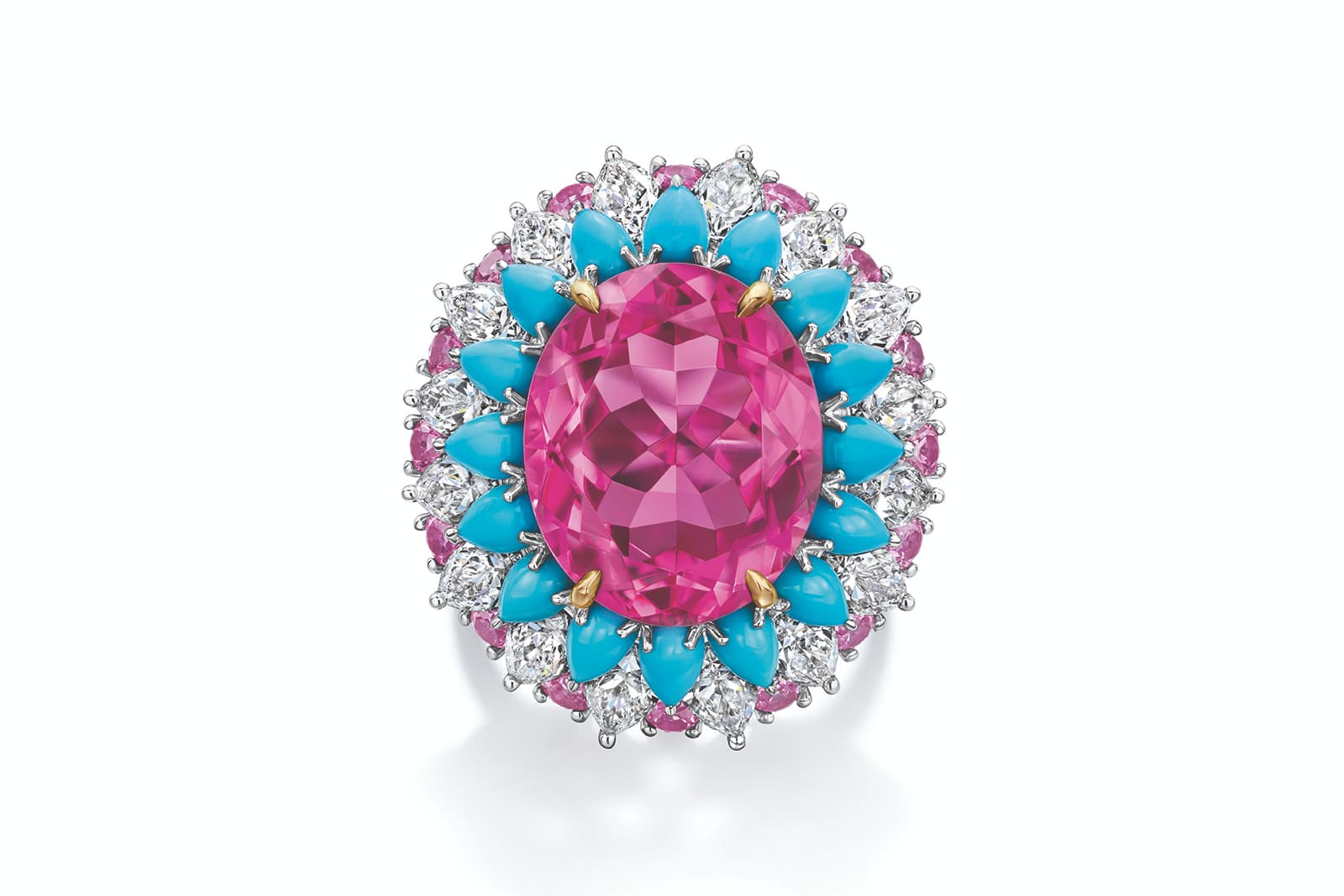
Harry Winston
Harry Winston
Winston Candy ring with 1 oval-shaped pink tourmaline weighing a total of 11.22 carats, pink sapphires and turquoise
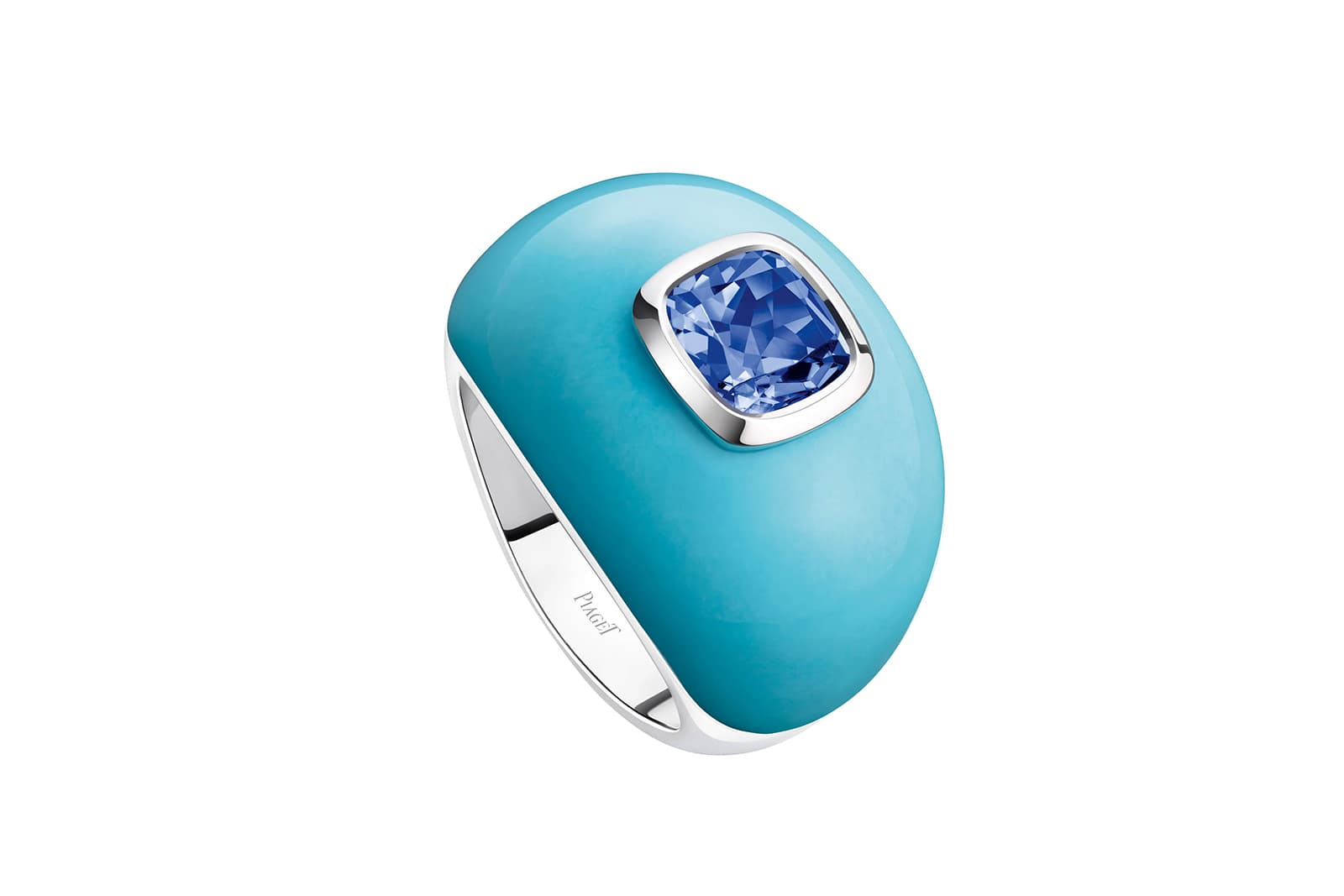
Piaget
Piaget
Extremely Piaget “Sunlight” ring in turquoise with a central tanzanite
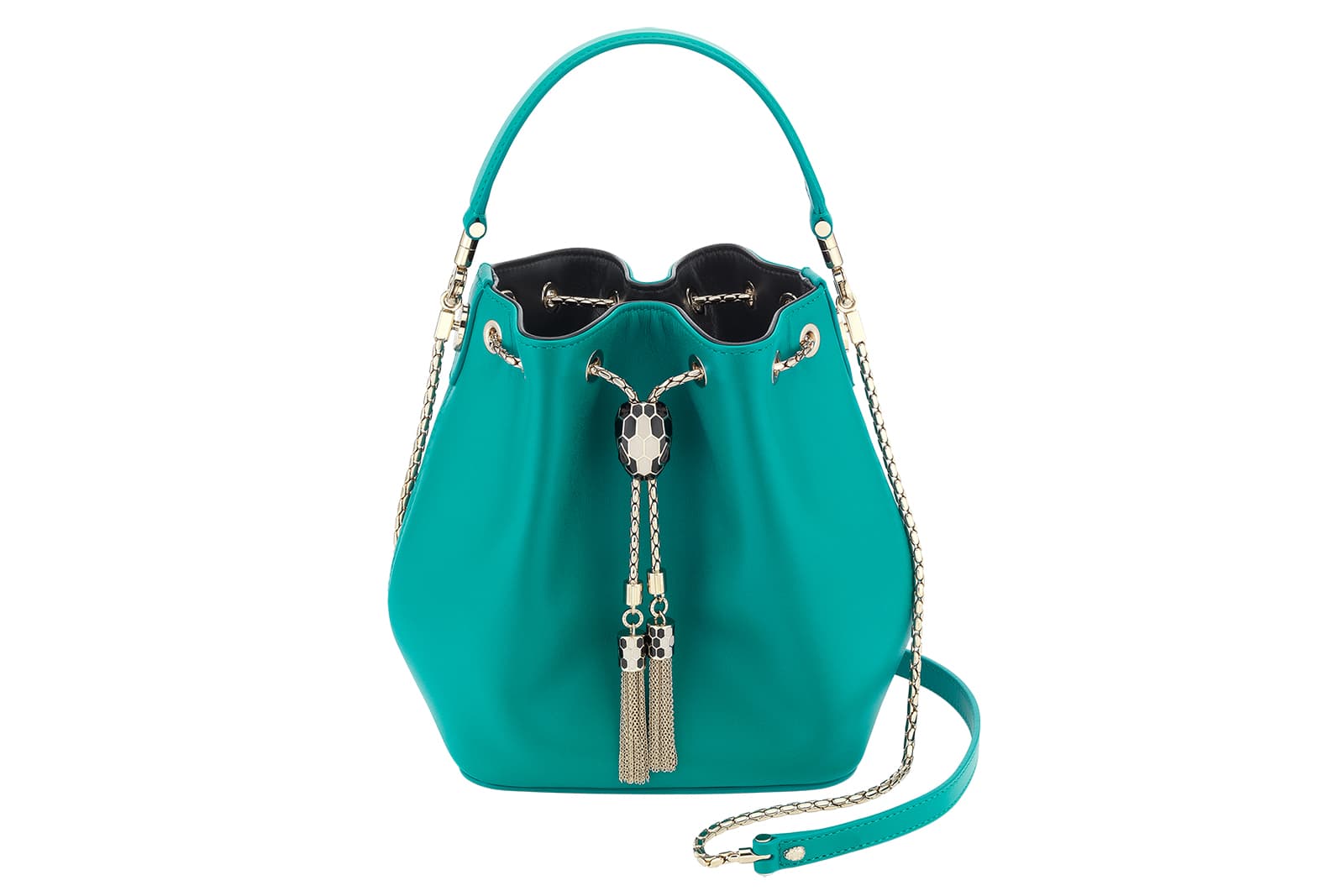
Bvlgari
Bvlgari
Serpenti Forever bucket bag
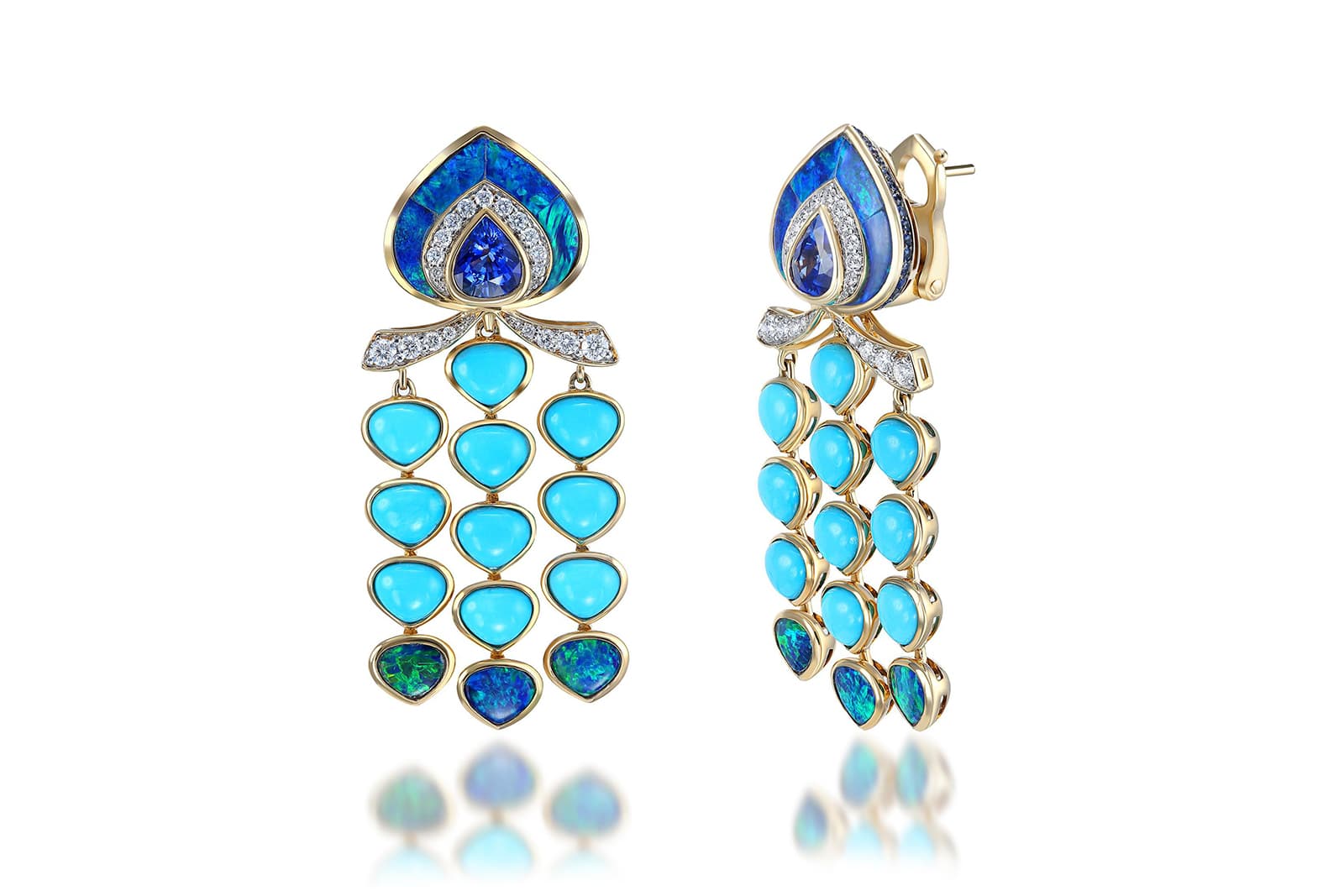
Marina B
Marina B
‘FABIOLA’ turquoise, opals, sapphire and diamond drop earrings
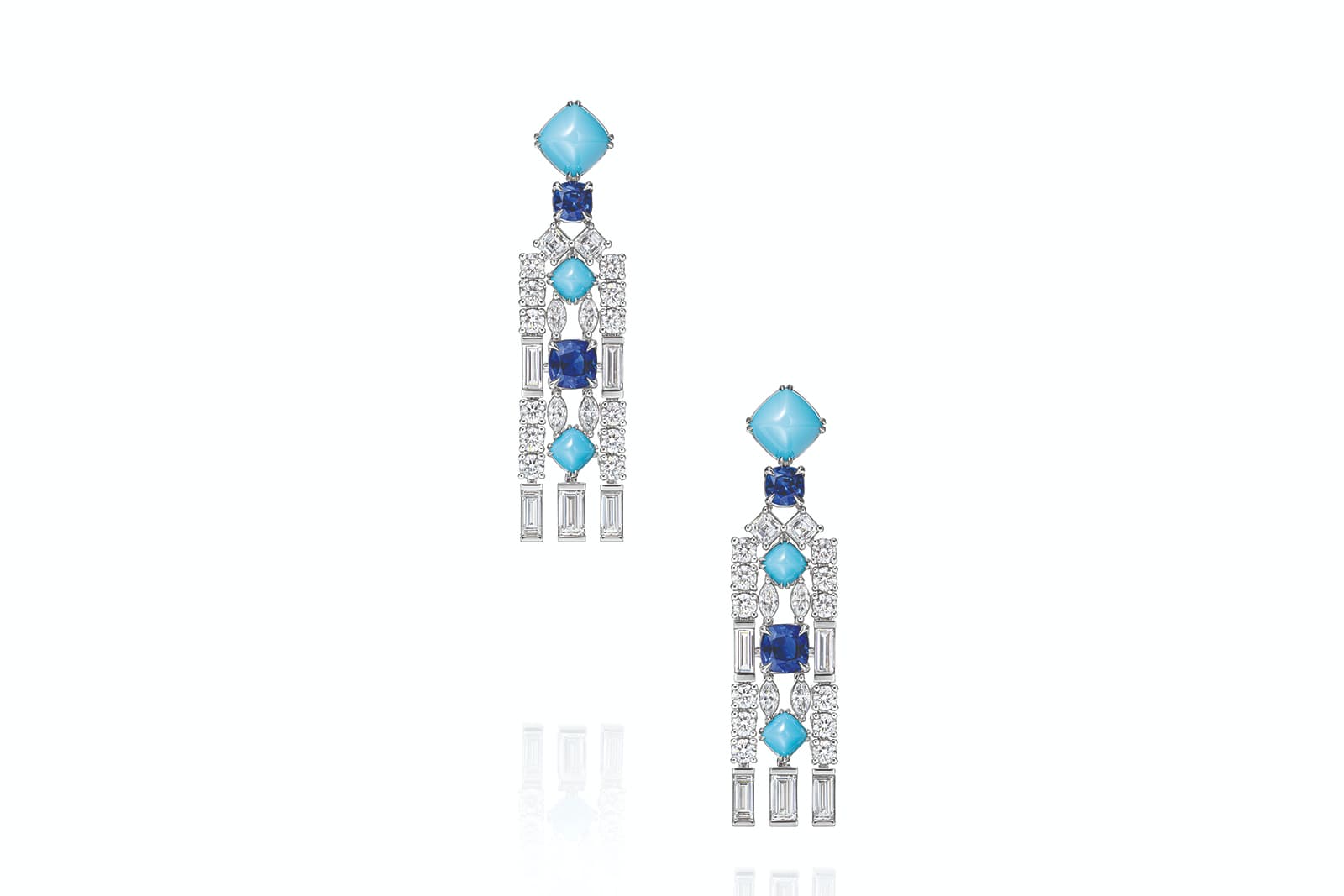
Harry Winston
Harry Winston
Brownstone earrings with 6 sugarloaf turquoise and 4 cushion-cut sapphires weighing a total of 6.48 carats, and diamonds
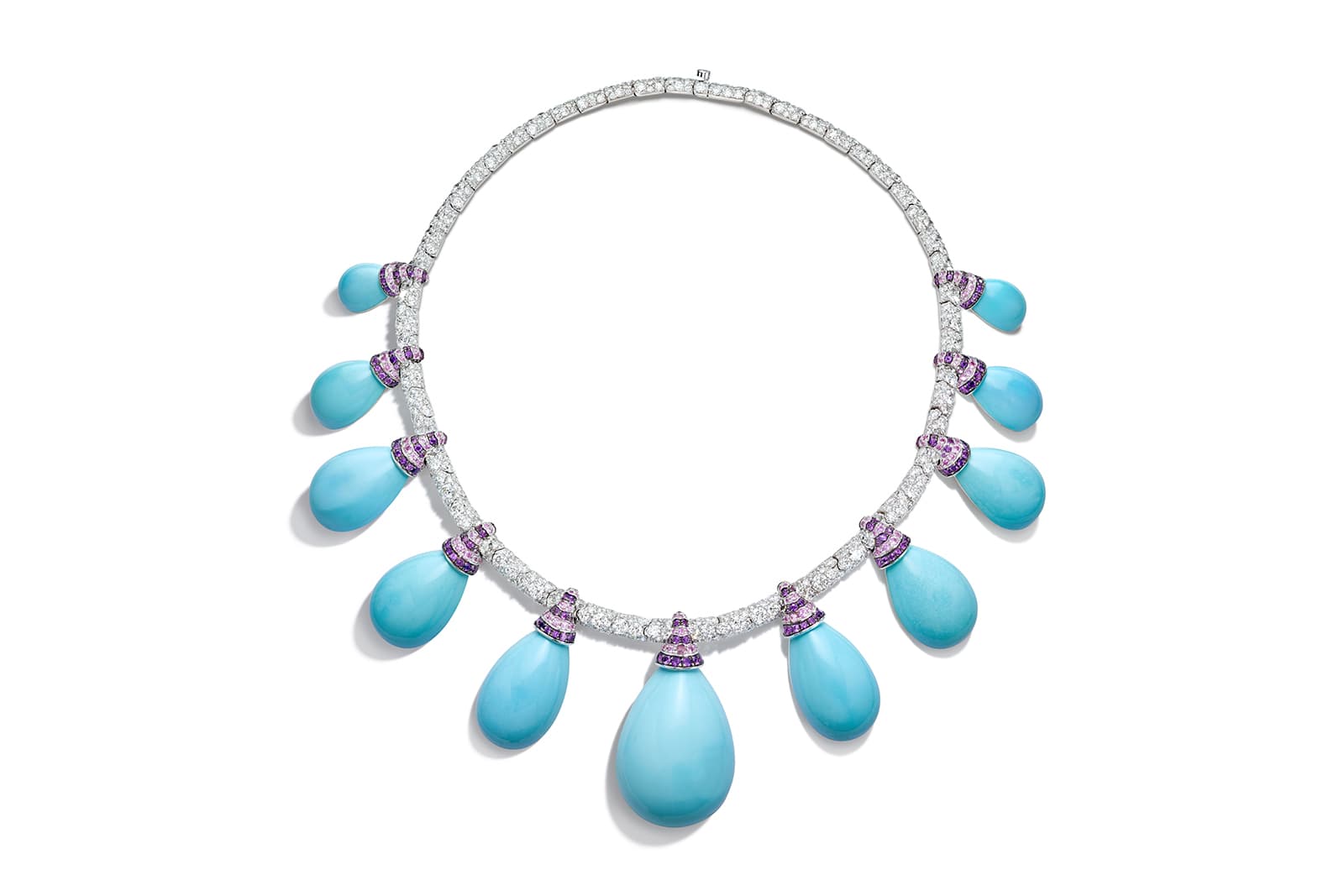
de GRISOGONO
de GRISOGONO
Mediterranean necklace with turquoise, sapphires and diamonds
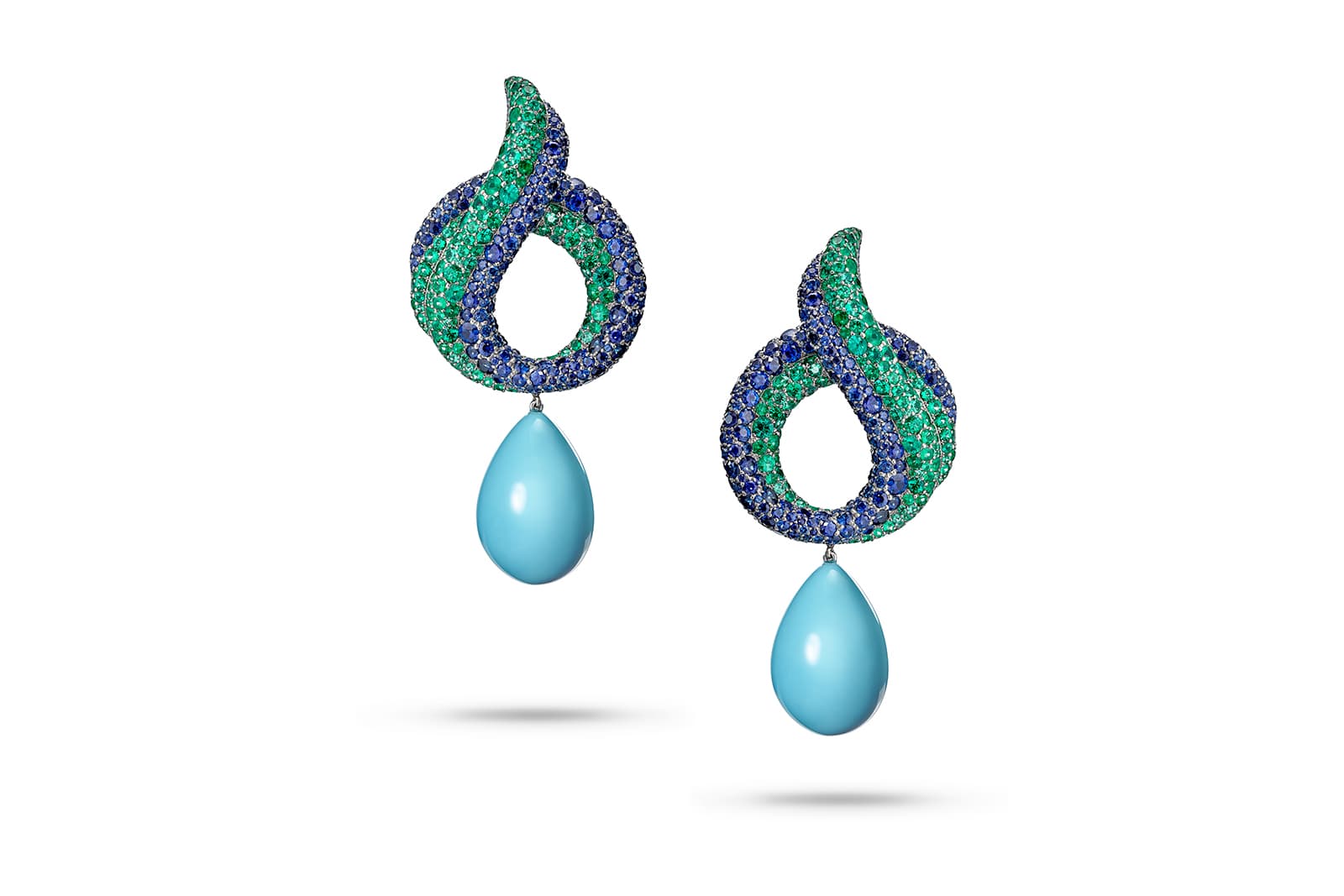
de GRISOGONO
de GRISOGONO
Mediterranean collection earrings with 66.84 cts turquoise drops, sapphires and emeralds
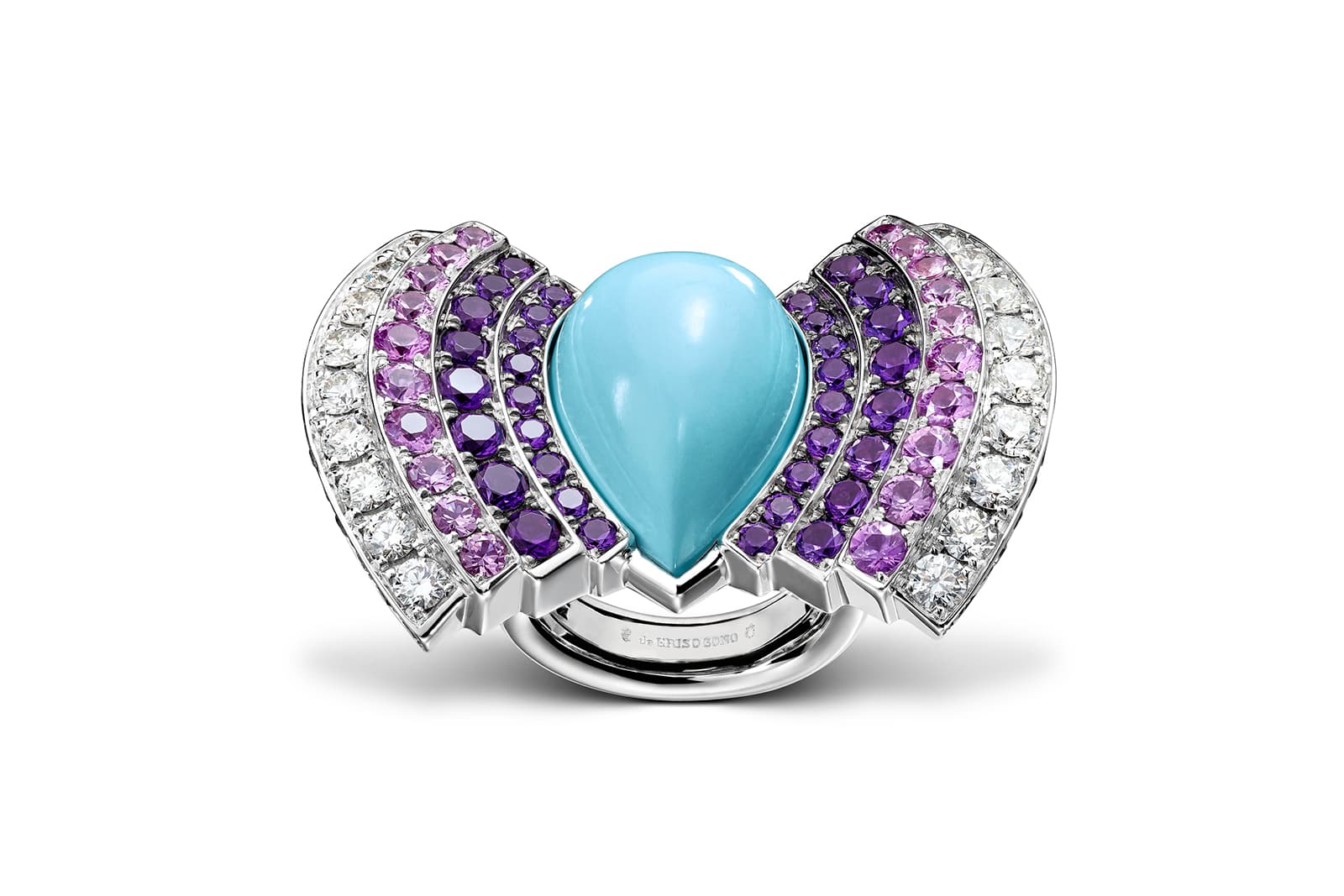
de GRISOGONO
de GRISOGONO
Mediterranean collection ring with 18 cts turquoise, sapphires, amethysts and diamonds
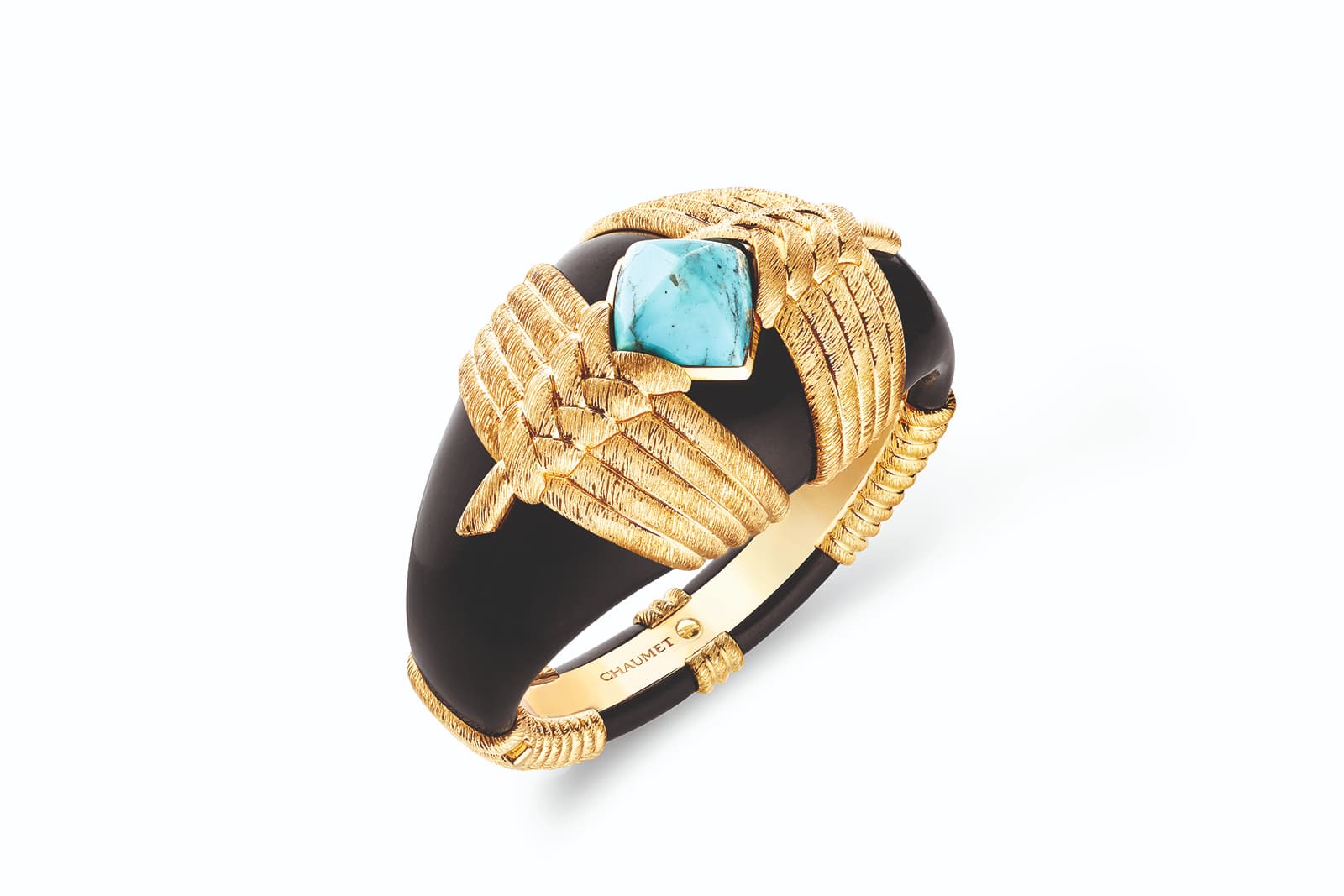
Chaumet
Chaumet
Les Mondes de Chaumet Talismania bracelet in ebony and turquoise set in yellow gold
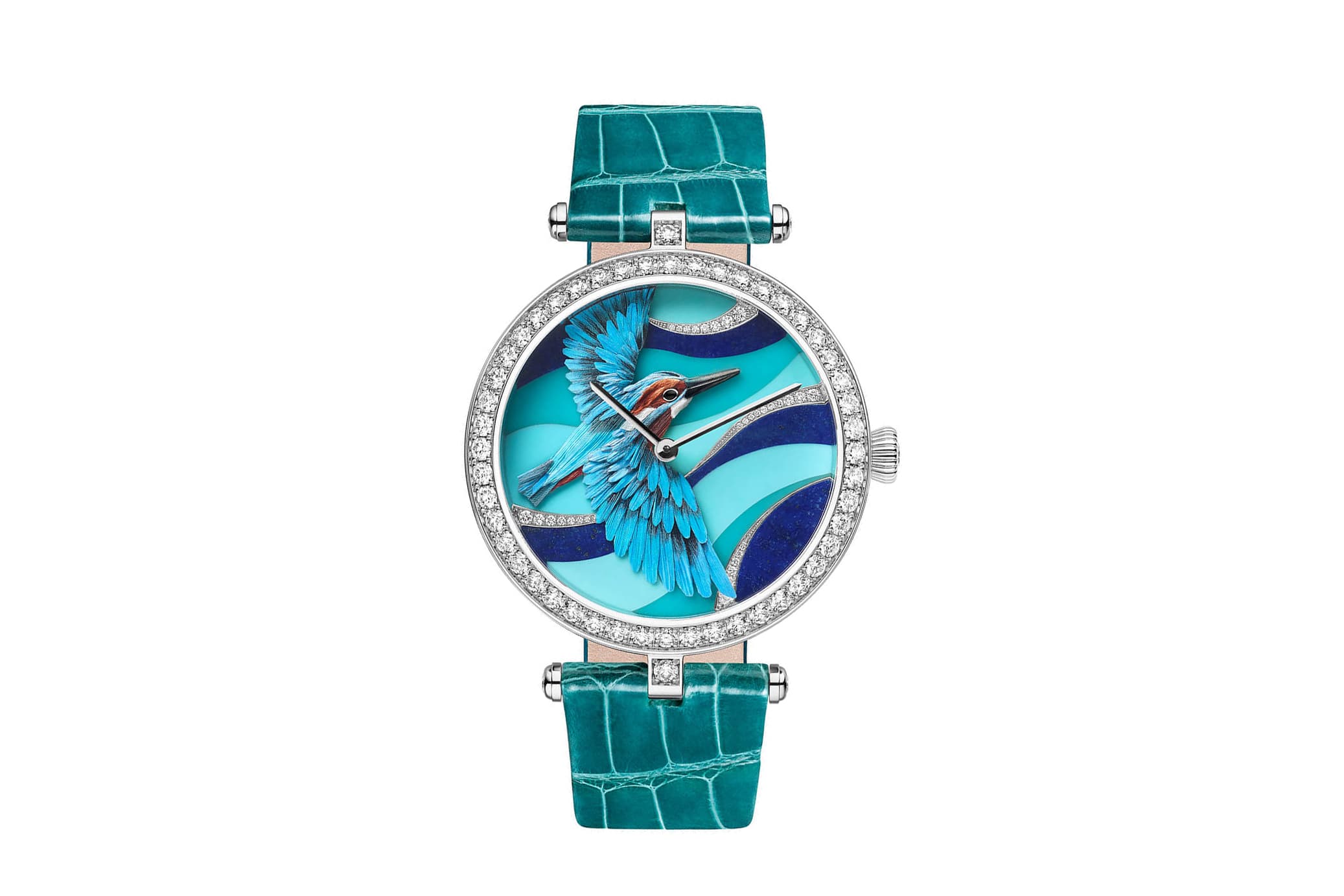
Van Cleef & Arpels
Van Cleef & Arpels
Lady Arpels Martin-Pêcheur Azur watch with turquoise, lapis lazuli and diamonds
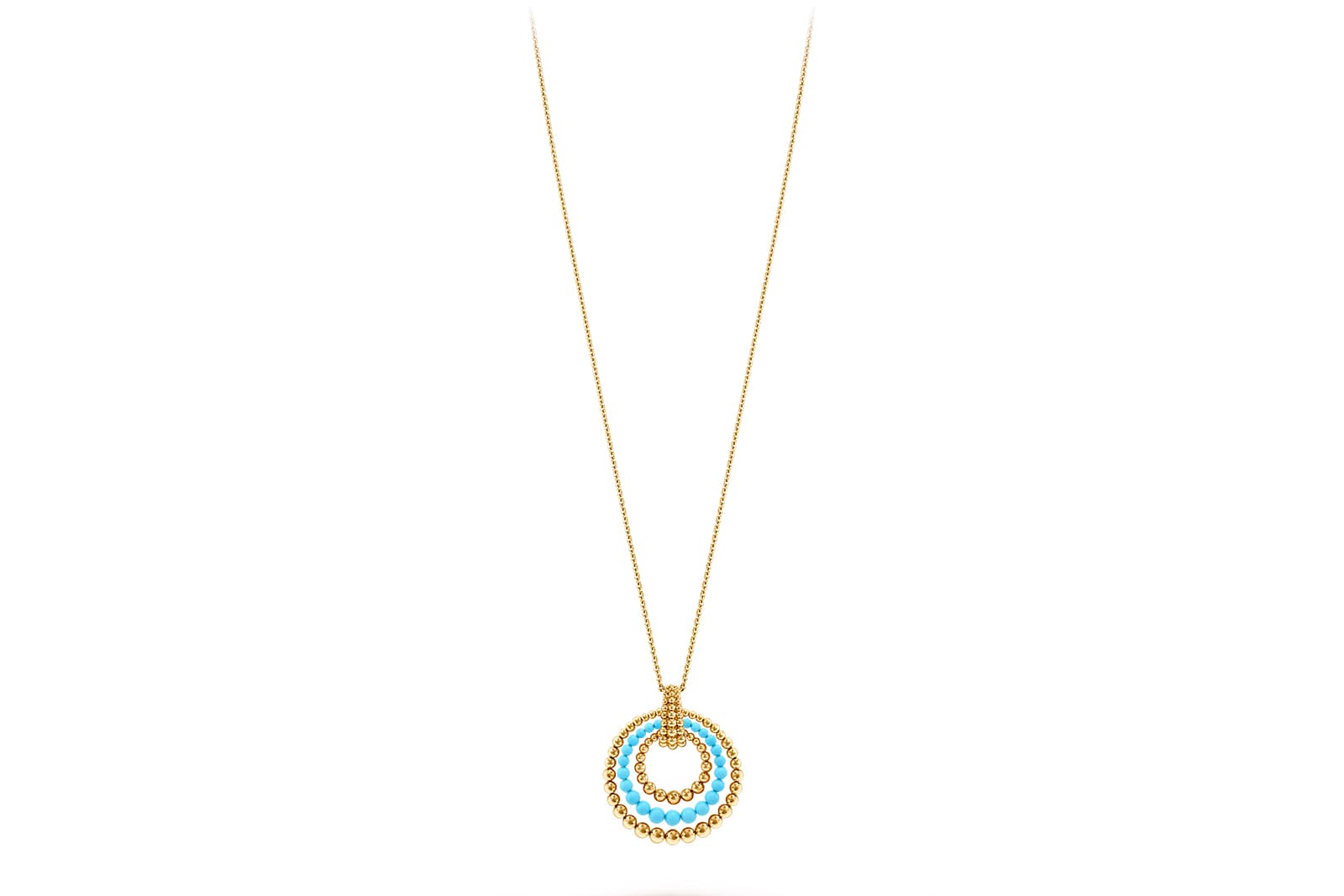
Van Cleef & Arpels
Van Cleef & Arpels
Perlée Couleurs transformable long necklace with turquoise set in yellow gold
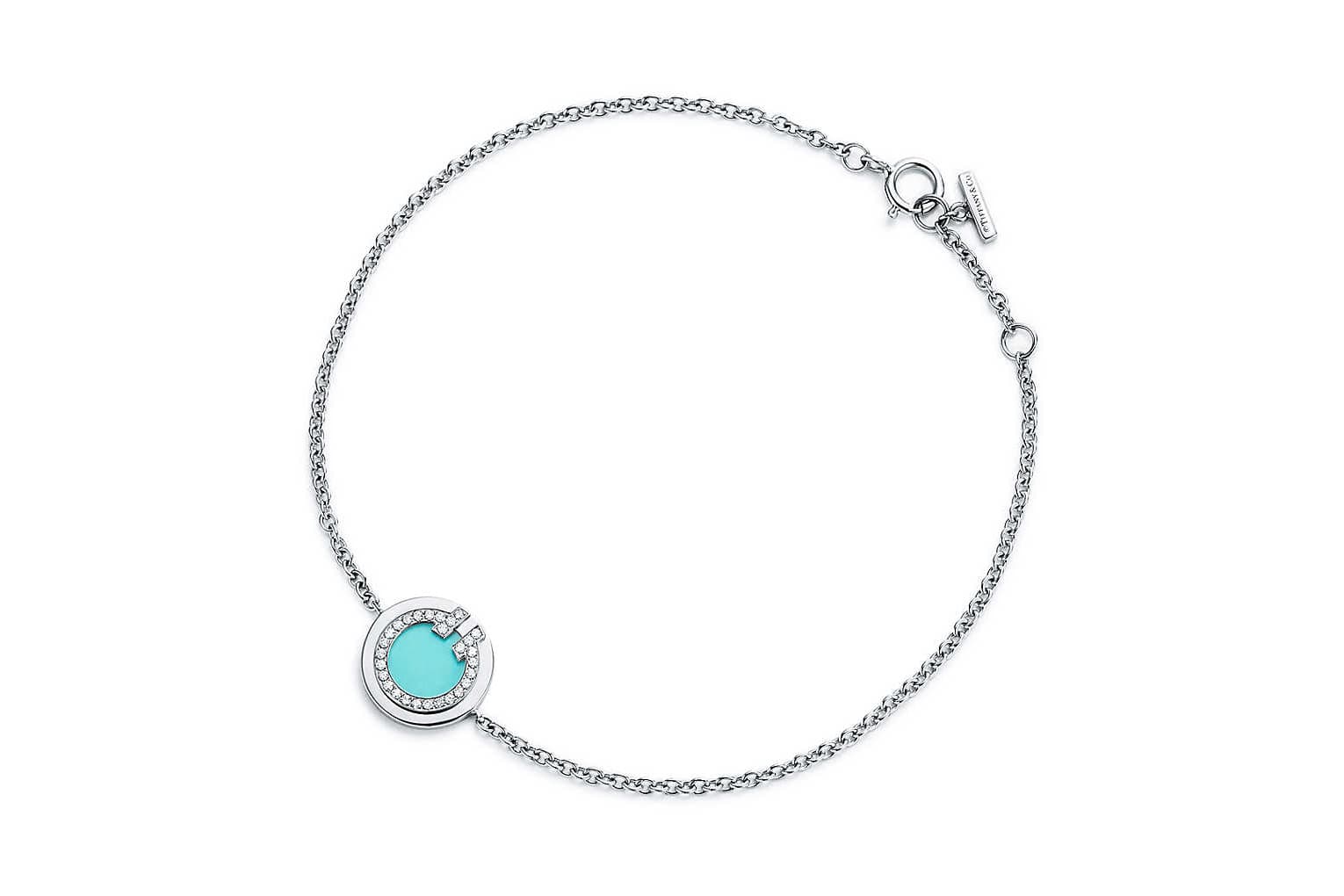
Tiffany&Co.
Tiffany&Co.
Tiffany T diamond and turquoise circle pendant
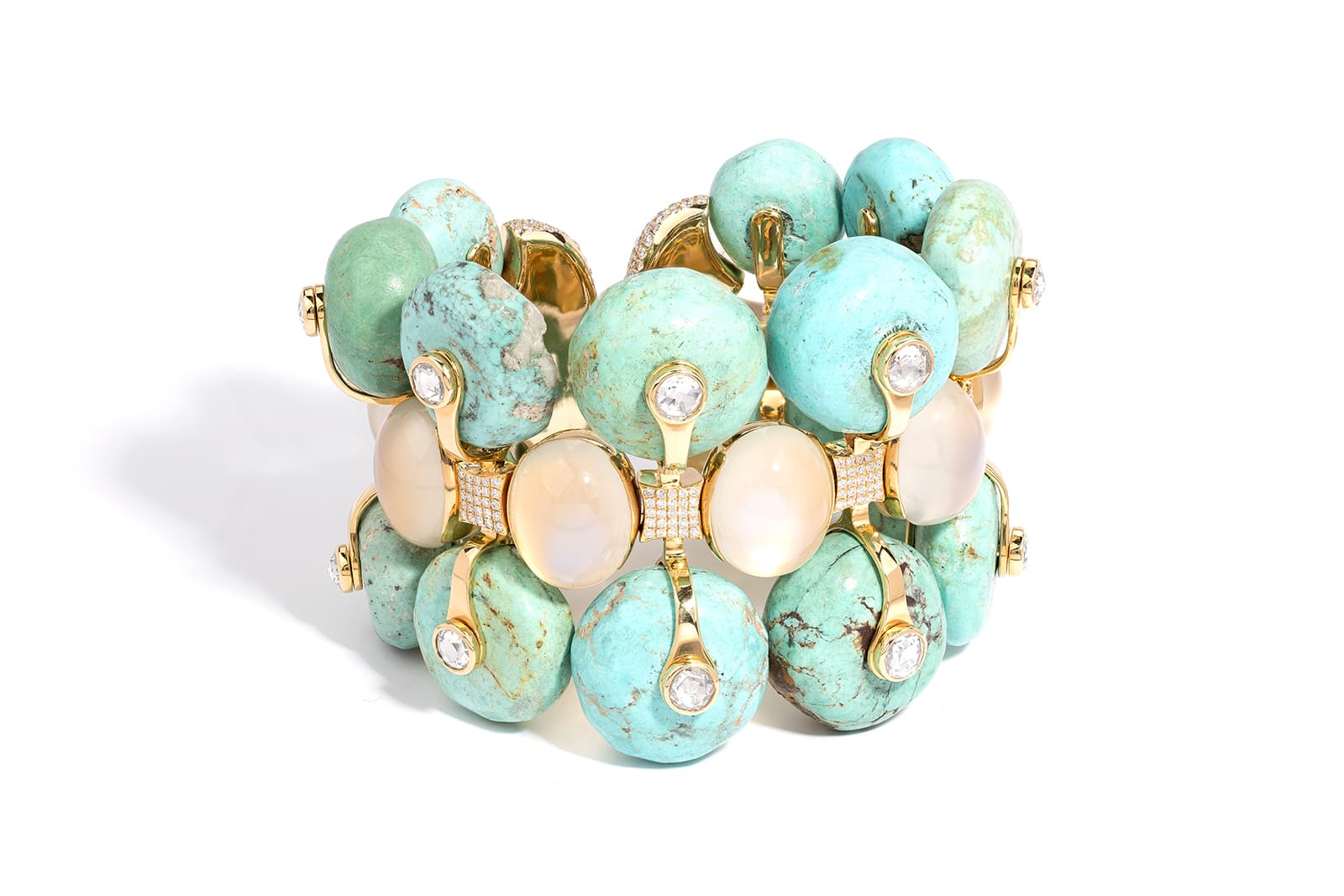
Glenn Spiro
Glenn Spiro
Turquoise Ceramic bangle in 18K yellow gold set with 16 Antique turquoise beads weighing 393.53 cts, moonstones and diamonds
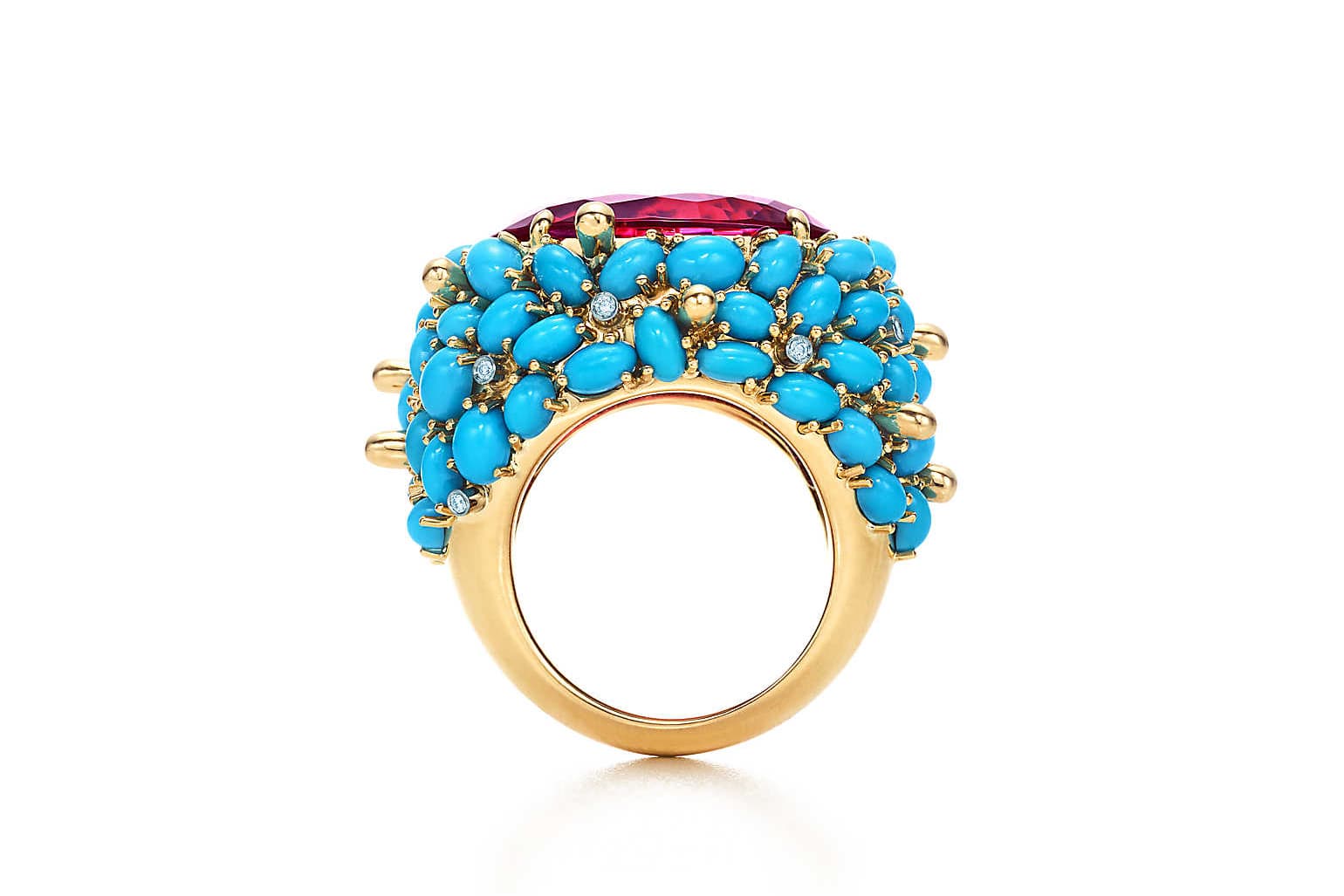
Tiffany&Co.
Tiffany&Co.
Turquoise and rubellite ring
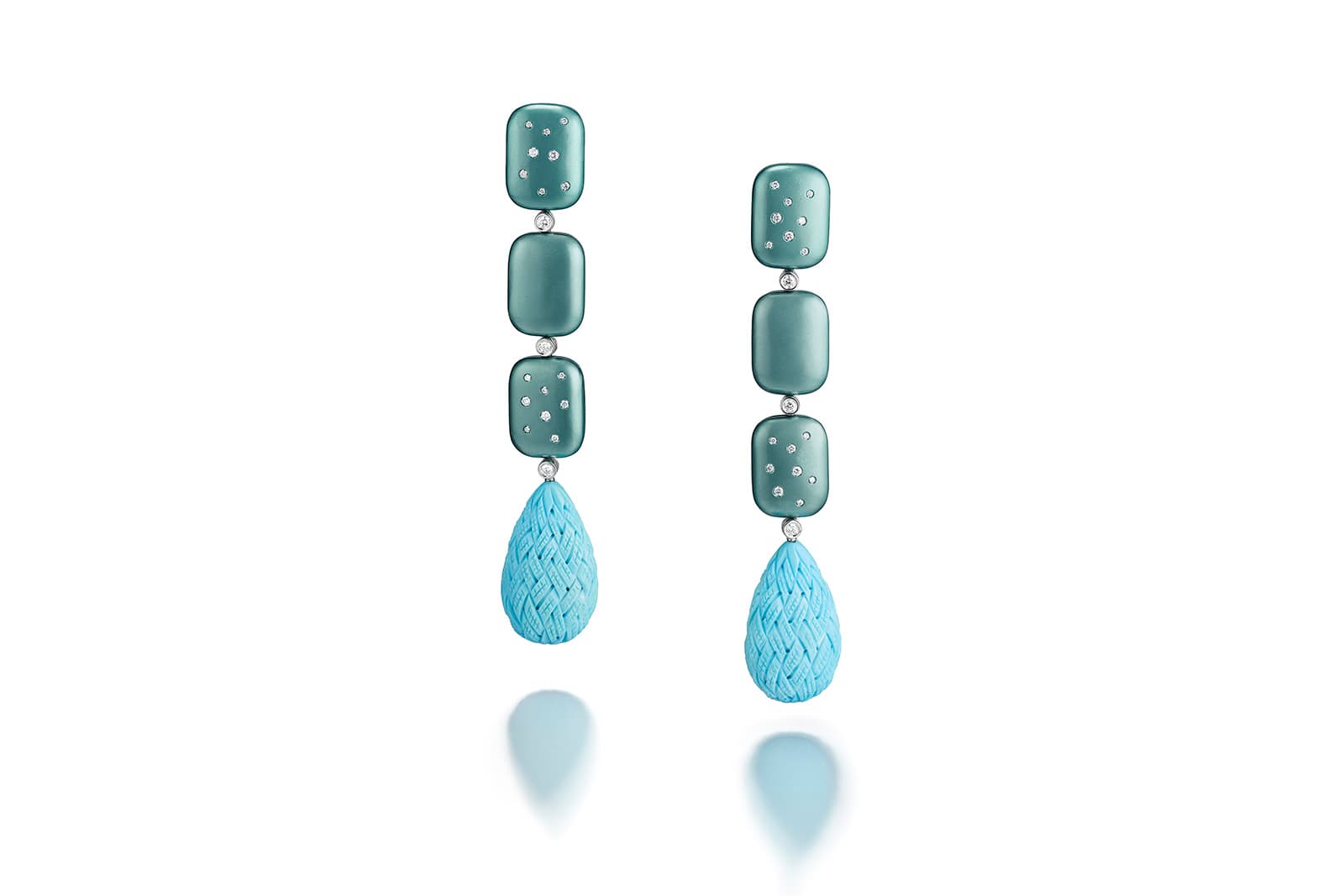
Suzanne Syz
Suzanne Syz
Carved turquoise and diamonds earrings in gold and titanium
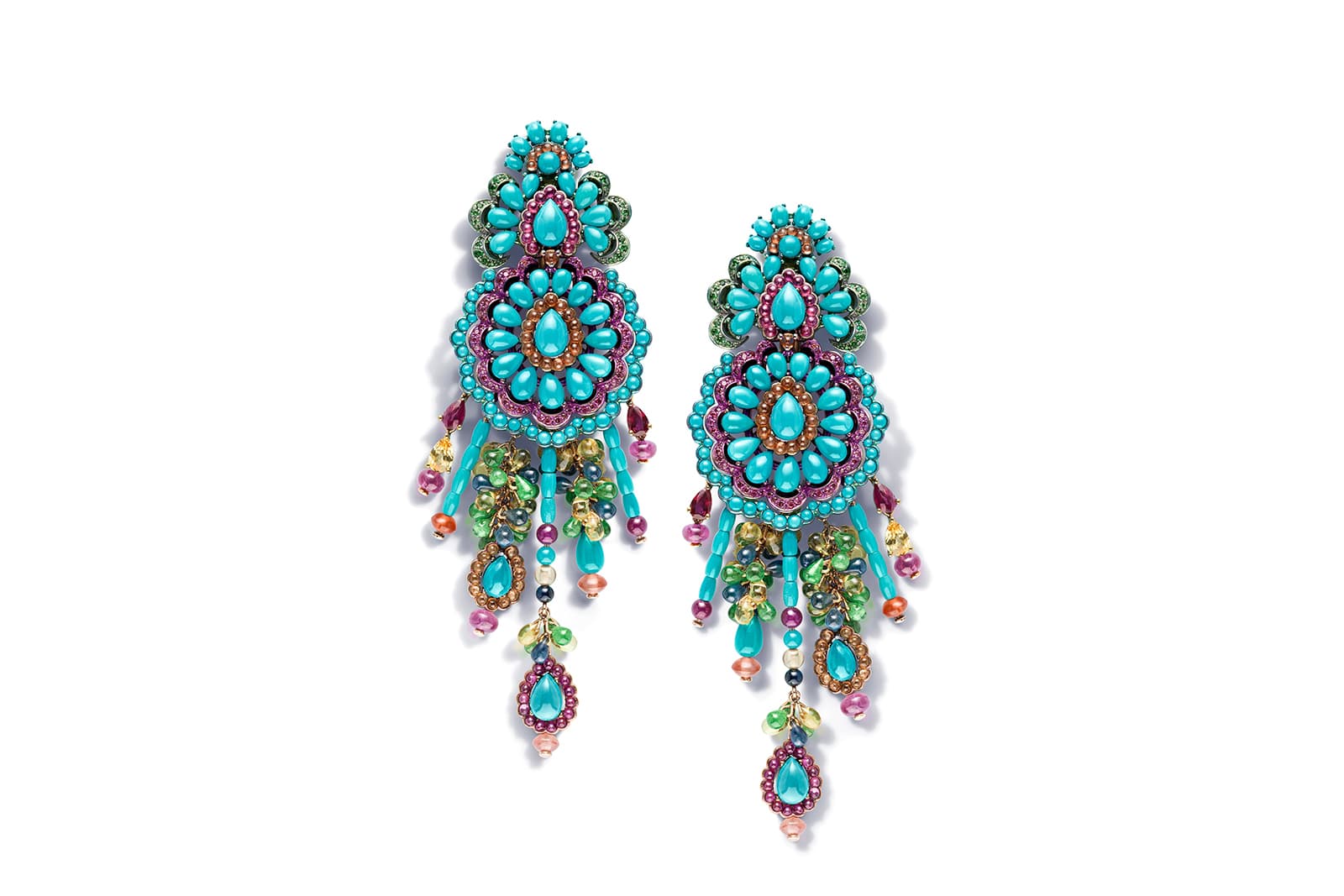
Chopard
Chopard
RIHANNA ♥ CHOPARD earrings

WORDS
Katerina Perez is a jewellery insider, journalist and brand consultant with more than 15 years’ experience in the jewellery sector. Paris-based, Katerina has worked as a freelance journalist and content editor since 2011, writing articles for international publications. To share her jewellery knowledge and expertise, Katerina founded this website and launched her @katerina_perez Instagram in 2013.

